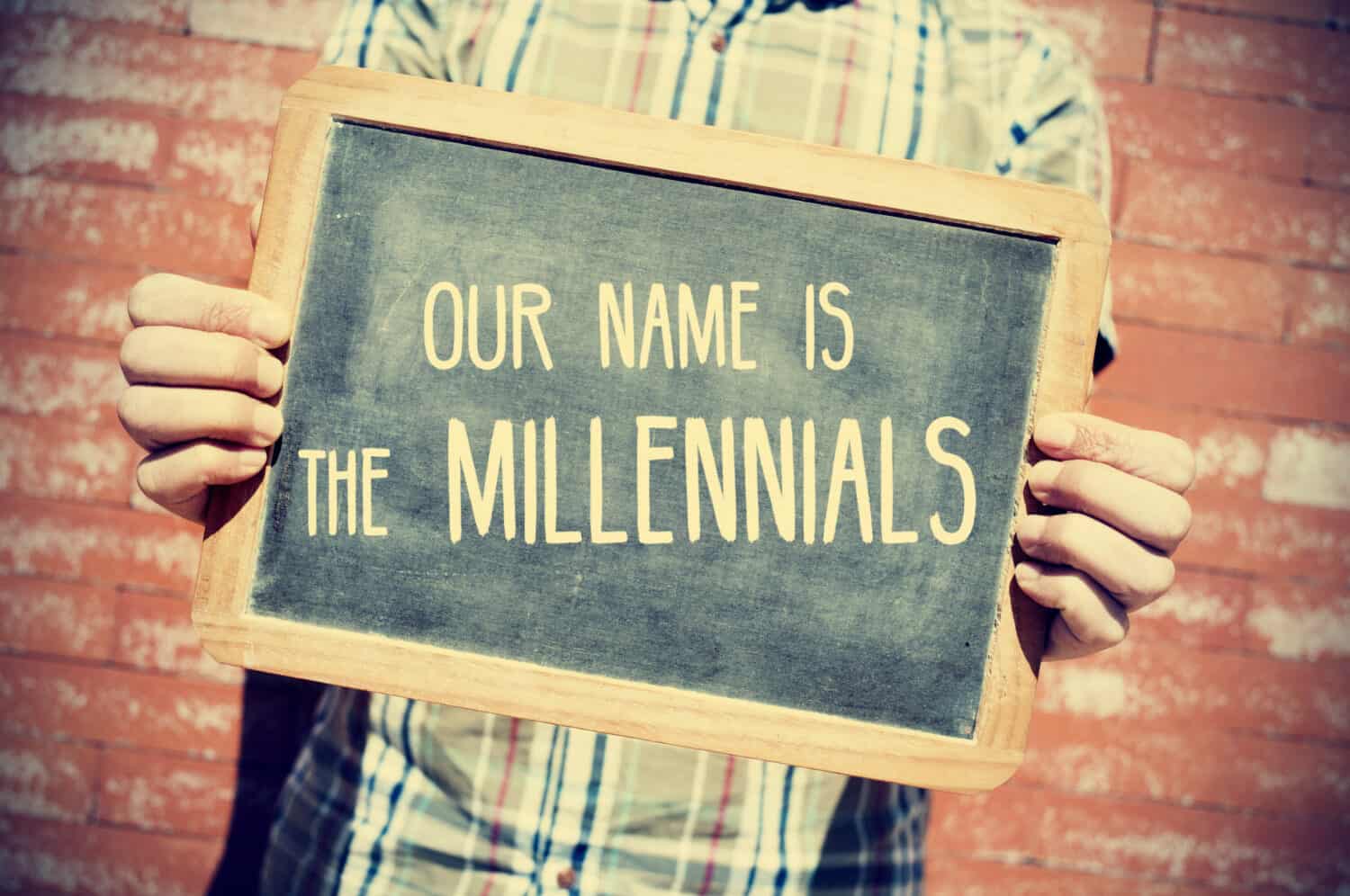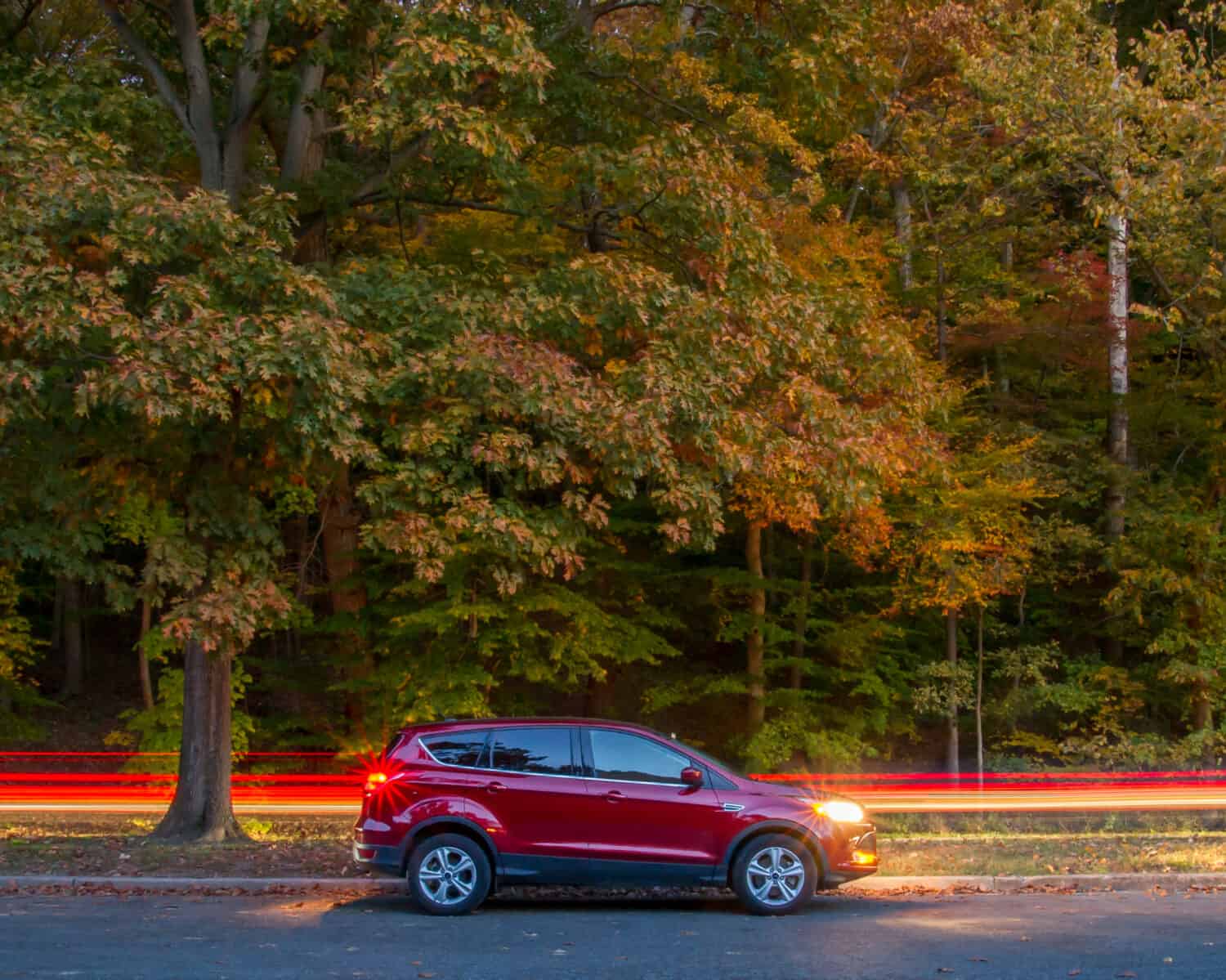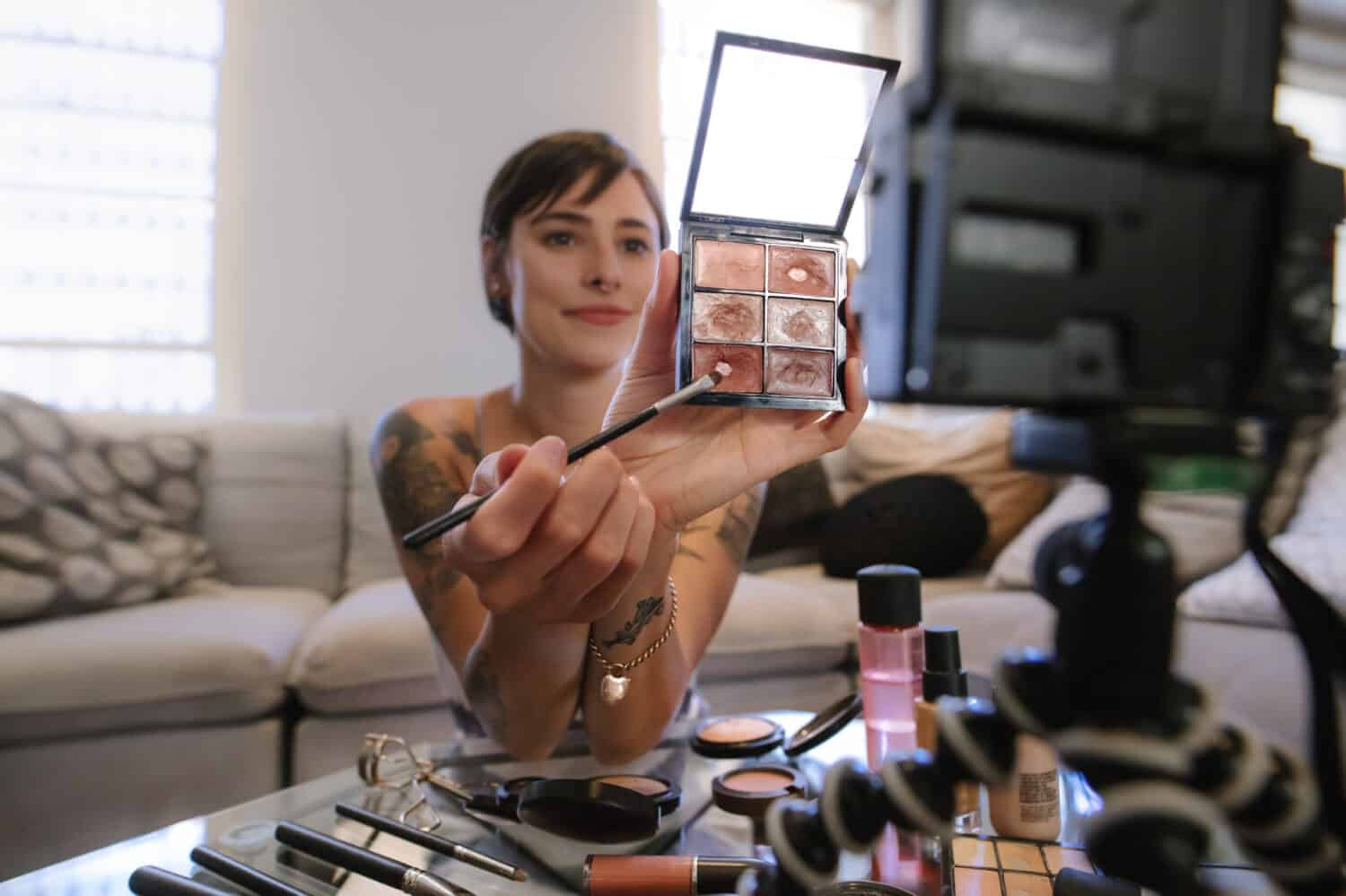The Millennial generation, or Generation Y, includes individuals born between 1981 and 1996. In 2022, they made up 21.67% of the United States population. As a result, businesses want to know more about this generation's shopping habits, which has led to extensive market research.
According to the United States Census Bureau, baby boomers comprised approximately 21.2% of the population in 2021. Furthermore, Baby Boomers owned approximately 52.2% of the country’s wealth, making them a popular demographic for market researchers.
We examined the purchasing behaviors of these two very different generations to understand how and why certain brands resonate with them. We will examine the brands both generations endorse and explore the reasons behind their mutual appeal. Finally, we will explore the brands that enjoy popularity among Millennials while being overlooked by Boomers and try to understand why.

The Millennial generation, or Generation Y, includes individuals born between 1981 and 1996. In 2022, they made up 21.67% of the US population.
©nito/Shutterstock.com
The Buying Habits of Millennials and Baby Boomers
According to market research, Millennials discover new products through social media, internet searches, and YouTube ads. While Millennials still shop retail, they buy more frequently online. Twenty-eight percent of polled Millennials made in-app purchases. Meanwhile, 26 percent of Millennials bought products based on social media influencer recommendations.
Another trait that emerged is the Millennials' preference for supporting businesses that prioritize social and environmental responsibility. Research indicates that over 40 percent of Millennials actively seek out companies that take a clear stance on social issues. This factor significantly influences their purchasing decisions, as they are more inclined to support brands that align with their values and beliefs.
Meanwhile, in a recent survey, Baby Boomers say that they discover new products through television ads, retail stores, and internet research. Social media is not as effective as a marketing tool for Boomers. According to recent data, only 17 percent discovered a new product. Meanwhile, only four percent of Boomers purchased a product via a social app.
And while many Millennials gravitate towards companies that take a stance on social issues, Baby Boomers believe companies should not do this. In fact, if companies take this socially-conscious approach, it may discourage Baby Boomers from engaging with their brand or business.

Millennials are drawn to socially-conscious companies while Boomers tend to dislike this approach.
©3rdtimeluckystudio/Shutterstock.com
What Brands Do These Generations Prefer?
Amazon is one of the few companies that every age group agrees upon, appearing in the top five for Gen Z/Millennials, Gen X, and Baby Boomers alike. In fact, Boomers named it their number-one brand overall. Apple also made it into the top 10 for each age group and was in the top three for Boomers. However, there are several brands that Millennials embrace that Baby Boomers avoid.
The Top Five Brands Baby Boomers Prefer
Most younger consumers, including Millennials, are seeking out creative and consumer-focused brands and experiences rather than safe and traditional brand names. The Baby Boomers are the last group to hold onto brand loyalty out of nostalgia. Their love of nostalgia is evident in Macy's making it into their top five brands. Also, Boomers love deep discounts, so it is no surprise that Amazon and Costco appear on their list.
- Amazon
- Toyota
- Apple
- Costco
- Macy's
Furthermore, Boomers are the only age group showing a strong preference for consumer-packaged brands. Four of these brands were among their top 10, including Hershey's, General Mills-owned Pillsbury, Kellogg's, and Pepsi. However, according to the report, companies like Kellogg's face challenges in keeping up with younger, more health-conscious consumers.
The Top Five Brands Millennials Prefer
According to Market Watch, these are the five brands to which Millennials are most loyal, despite being characterized as a generation that dislikes brands. Additionally, Forbes states that this generation conducts more research before making purchases than previous generations. Data suggests that Millennials will consult 23 sources before deciding upon a purchase.
- Playstation
- Target
- Ford
- Disney
- YouTube
Fifty percent of Millennial shoppers expressed feeling an emotional connection with PlayStation more than any other brand. This Sony-owned video game system ranks number one among those ages 18 to 34. PlayStation scored the highest in the nostalgia category, probably because this generation grew up with unparalleled access to video games.
Now that we have a thorough understanding of the shopping habits of both Millennials and Baby Boomers, it is time for an in-depth examination of the top five brands that Millennials love that Baby Boomers tend to avoid.

Both Millennials and Boomers love Amazon, making it one of the few brands these two generations agree upon.
©Daniela Vazquez/Shutterstock.com
PlayStation
Both the Millennial generation, born between 1981 and 1996, and Generation Z, born between 1995 and 2012, chose video game brands as their number one choice. Millennials are loyal to PlayStation, while Gen Z has shown a clear preference for Xbox. (It is interesting to note that there is an overlap in the years that define these two generations, leading to shared characteristics and interests.)
New data indicates that 77 percent of American Millennials ages 18-34 play video games to relax and unwind. Meanwhile, 60 percent play to escape from the reality of everyday life. In total, 51 percent of Millennial gamers agree that advertising helps them decide what to buy, compared to 47 percent of the general public.
PlayStation is not a brand that Boomers are drawn to, despite nearly 42 percent of this generation being video game players. Boomers are drawn to different games than Millennials. Furthermore, Boomers tend to spend far less time and money on video games than Millennials. On average, a Boomer will spend 2.5 hours a week gaming. Meanwhile, Millennials play an average of 22 hours per week.
Furthermore, in addition to preferences for gaming brands, each generation has different motivations for gaming. While Boomers also play to relax, they get more satisfaction from achievements and competition.

According to recent data, Millennials are most loyal to the gaming brand PlayStation.
©ronstik/Shutterstock.com
Target
According to Business Insider, the typical Target shopper is a Millennial suburban mom with a household income of $80,000. In fact, Target's average customer is a woman who is 39 years old, white, and married. Millennials love Target, so much of the brand's advertising is directed at this generation.
While Target is popular across several generations and has higher-than-average customer loyalty compared to other major retailers, it is not as popular with Baby Boomers. Stores like Macy's, Costco, and Walmart are more popular with this generation. Boomers are drawn to stores with deep discounts, which, along with their sense of nostalgia, explains why Target is less popular with this generation.

Market research data suggests that the typical Target shopper is a Millennial suburban mom with an average household income of ,000.
©VTT Studio/Shutterstock.com
Ford
The Ford car company recognizes that older Millennials, who are now approaching the age of 40, are starting families and looking for larger vehicles. In a press release, the company stated, “America's largest demographic is beginning to do all of these things, just a bit later in life than their baby boomer parents once did.”
Until recently, some researchers believed Millennials disliked cars and were predicting the decline of large SUVs. However, this turned out not to be true. Instead, buying large cars was delayed because Millennials tend to marry and have children later in life due to economic reasons. Now that older Millennials have found some stability, they are able to make larger purchases like buying an SUV for their family.
Boomers, who are driving less now, gravitate towards smaller, economy cars and brands like Honda, Toyota, and Chevrolet. In fact, in 2021, the top car choice for older Boomers was the Toyota RAV4.

Ford is the third most popular brand for Millennials, dismissing the idea that Millennials disliked SUVs.
©jyurinko/Shutterstock.com
Disney
“Disney adult” is the sometimes not-so-nice nickname given to adults who still love all things Disney. These adults are typically Millennials. Their love of Disney may be due to nostalgia, as many cite Disney films as being an important part of their childhood.
During Disney+'s inaugural year, 44 percent of Millennials watched the channel at least once a week. Older Millennials are sharing their love of Disney with their families, with 49 percent of Millennial parents saying they use Disney+ at least once a week. However, so do 33 percent of childless Millennials. As a result, Disney is number four on the list of brands Millennials love.
Boomers are not flocking to the Disney brand. Perhaps this is because they are older and no longer have children. They may also long for the more affordable Disney World of the past. Other causes for this lack of interest may include the fact that Boomers came of age during the counterculture years of the 1960s. As a result, they may have been less interested in the family-oriented brand growing up.
In fact, this may be reflected in Boomers' television-watching habits. The Boomers who are watching Disney+ are not watching the classic Disney films. Data suggests they are watching the Star Wars franchise, which may remind them of taking their kids to see the original films. For all of these possible reasons, Disney is not a Boomer brand.

Millennials tend to love all things Disney and are avid watchers of Disney+.
©QingQing12/Shutterstock.com
YouTube
YouTube will turn 20 in 2024. It averages 2.49 billion monthly viewers, making it a huge brand popular with younger generations. Researchers believe that 80 percent of people between the ages of 18 and 49 frequently use the platform. Furthermore, 54 percent of Millennials visit the website every day. Marketers have finally figured out that Millennials are not averse to branding, so it has become a popular marketing platform. YouTube is a great place to sell to Millennials, and they are buying from brand accounts in large numbers.
While it is not completely accurate to say that Boomers avoid YouTube, they tend to use the platform as a learning tool rather than for shopping. Even though Boomers have more spending capital than Millennials on average, less advertising is directed toward them, which also contributes to their buying less.

Millennials frequent influencer and YouTube brand accounts more than any other generation.
©Jacob Lund/Shutterstock.com
In Summary
Millennials make up 22.67% of the US population. As Millennials age and start families, marketers have begun to notice their brand loyalty, which is driven by values different from those of other generations, especially the Boomers. For example, Millennials prefer socially conscious brands, while Baby Boomers do not favor this approach.
Additionally, Millennials tend to make more online purchases and prefer buying from brands that boomers may not be as familiar with, such as PlayStation. Target's average customer is a Millennial mom, while boomers tend to favor stores such as Macy's, which they grew up with, and Costco, where they can find great value when shopping. Analyzing the brands that appeal to Millennials and that Boomers tend to avoid is a great way to understand the differences between these generations, which go beyond just the age gap.
The image featured at the top of this post is ©YAKOBCHUK VIACHESLAV/Shutterstock.com
